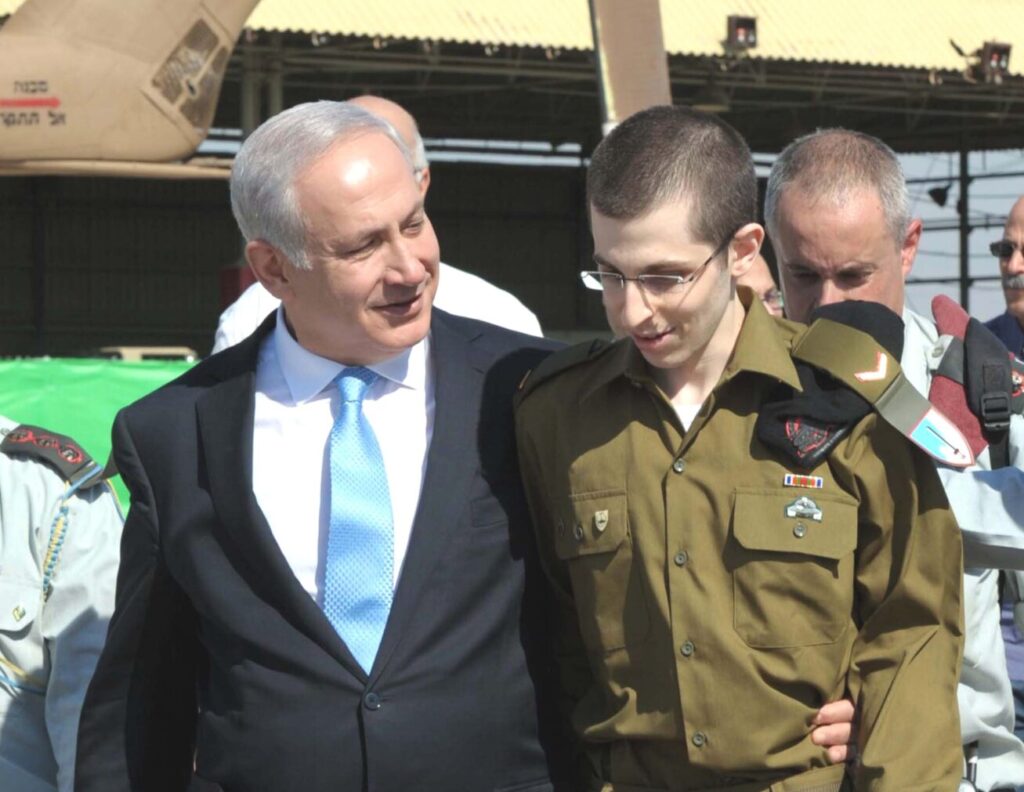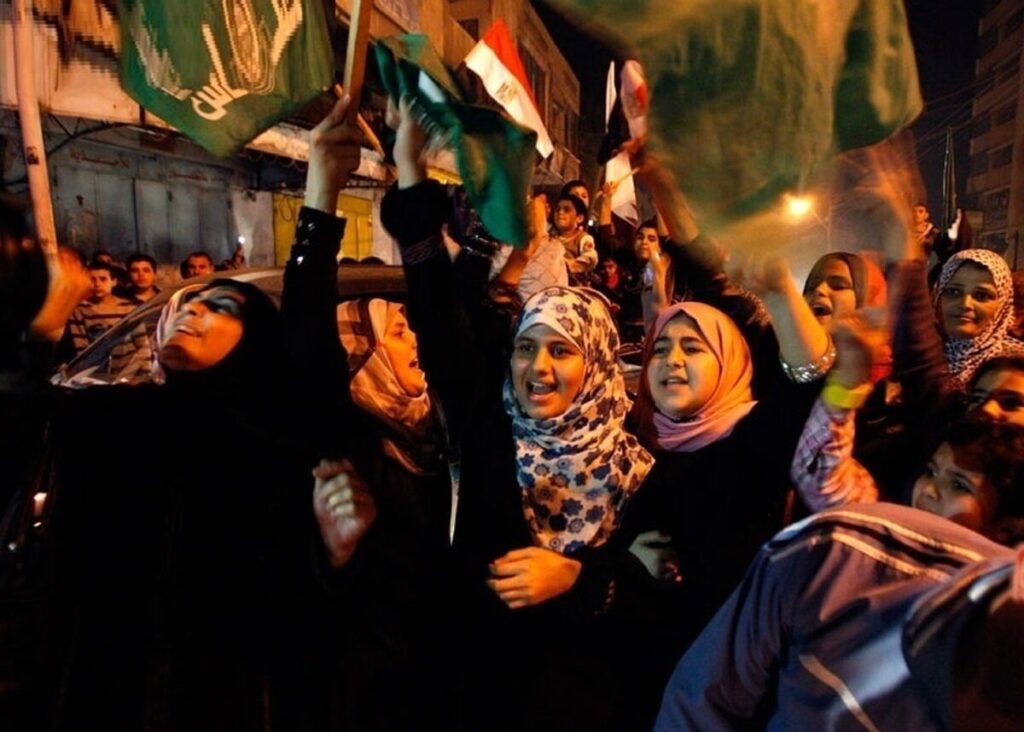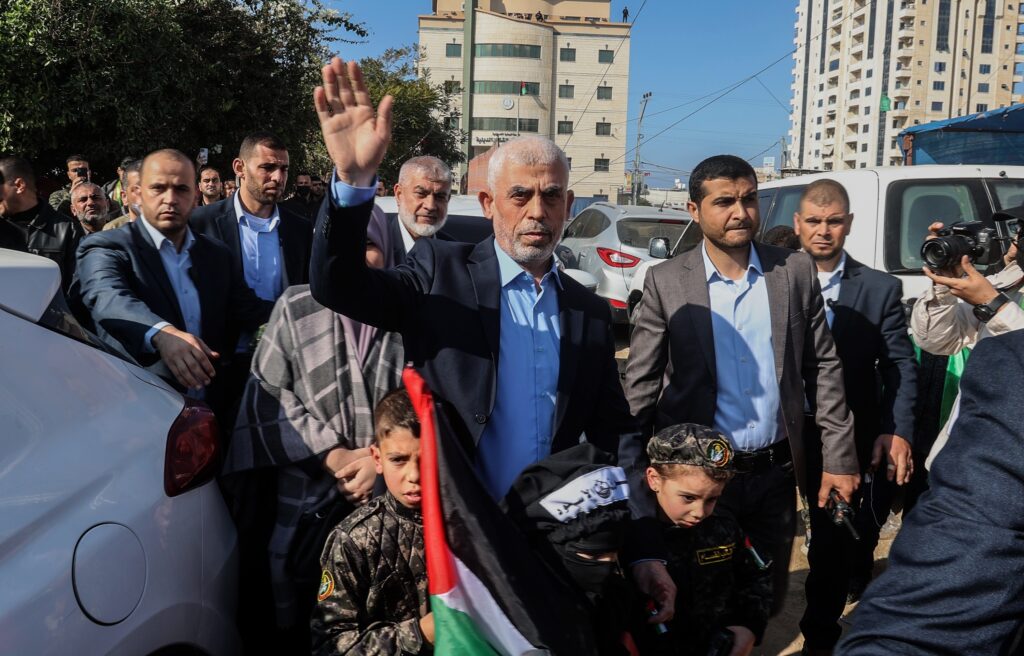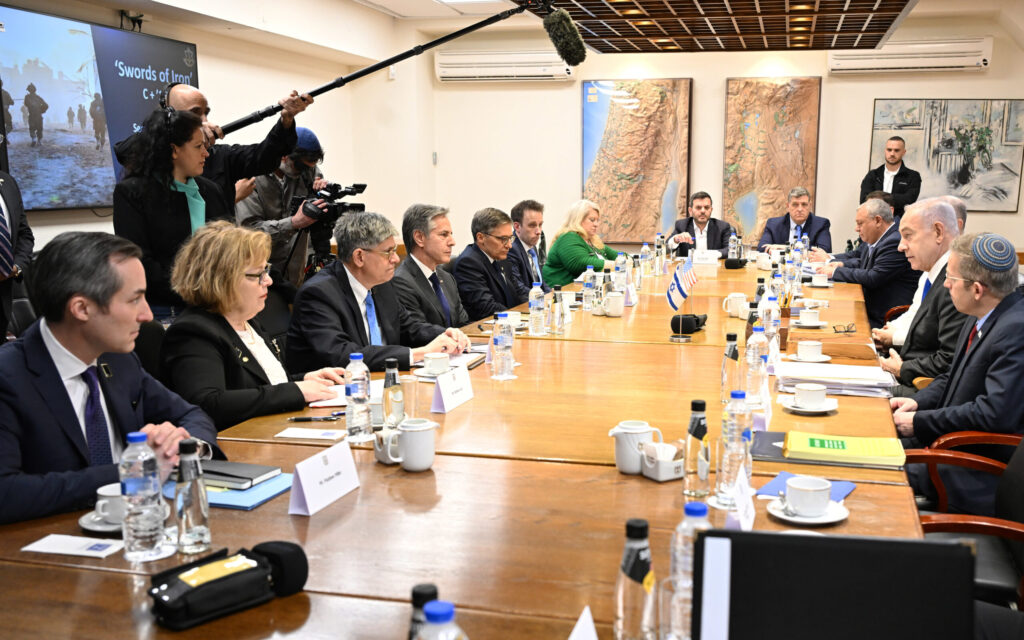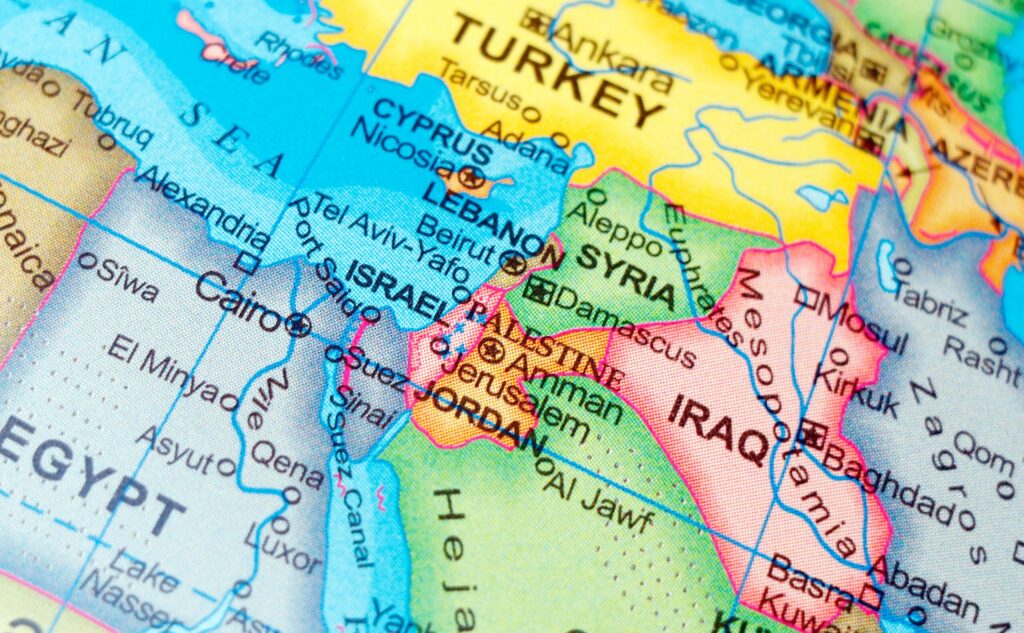UPDATES
The Latest IAEA Report on Iran/ Turkey’s Referendum
Sep 17, 2010
Update from AIJAC
September 17, 2010
Number 09/10 #04
As noted in the previous Update, last week the International Atomic Energy Agency (IAEA) revealed some frightening information on Iran’s nuclear program in connection within their latest quarterly report – including that Iran has perhaps three bombs worth of low-enriched uranium and has passed the crucial technical hurdle of enriching uranium to 20%. This Update features some comment on the significance of the latest IAEA findings on Iran, as well as a piece on Turkey’s constitutional referendum last Sunday.
First up is an editorial from the Wall Street Journal, which argues that the IAEA’s reports provisions on the lack of Iranian cooperation seem “depressingly similar” to many past reports. It says that even more striking than Teheran’s nuclear progress is the fact that Iran “is closing the blinds even on its declared, supposedly peaceful, civilian sites” to the IAEA. Finally, the paper says assurances that Iran requires a year to get a bomb are “hardly reassuring” and calls for “our leaders to explain the grave stakes here, in particular that military force might be needed”. For the rest of this warning, CLICK HERE. Another US editorial, in the New York Post, is highly critical of the UN for not taking stronger action in the face of Iranian obfuscation.
Also commenting on the latest IAEA findings was the Washington Post, which focuses on one key question raised. The paper asked, is it actually clear, as the public is often assured, that the IAEA would be able to detect any effort by Teheran to divert its uranium to military production? It points to an analysis of the IAEA report by Institute for Science and International Security which concluded that Iran may be trying “to increase its capability to divert nuclear material in secret and produce weapon-grade uranium in a plant unknown to the inspectors or Western intelligence agencies” as particularly concerning. For the Post’s complete argument, CLICK HERE. Meanwhile, an Iranian dissident group has pinpointed the location of an alleged new secret Iranian enrichment plant, which could be part of the secret infrastructure the Post was concerned about.
Finally, noted Turkey expert Soner Cagaptay discusses the successful constitutional referendum in his home country and what it says particularly about the increasingly transformative rule of the Islamist-oriented AKP party. Cagatay says that while the referendum has some positive democratising elements, it also seals the control of the AKP over the last independent bastion of power in Turkey, the judiciary. He makes the case that the AKP must fulfil a more consensus-oriented pluralist model of politics, for its own good as well as Turkey’s, and urges Turkey’s allies in the US and Europe to use their influence to encourage this to happen. For all that Cagaptay has to say, CLICK HERE. In some negative early signs, Turkey’s AKP government says it will be increasing its trade with Iran despite the sanctions. The AKP party is also reportedly set to receive US$25 million from the Iranian government to use in its electoral campaign.
Readers may also be interested in:
- American analysts Reuel Marc Gerecht and Mark Dubowitz argue that for Iran sanctions to work, pressure must be put on Russia and China now to curtail their trade with Iran. More on China’s growing trade and investment in Iran comes from academic foreign policy specialist Ilan Berman.
- A report on the poor state of the Iranian economy. Meanwhile, a number of Iranian diplomats have recently defected – see here and here.
- Signs of increasing tension in Iran between President Ahmadinejad and Supreme Leader Khamenei. More on Iranian domestic conflicts is here.
- Veteran diplomat Harold Rhode offers a detailed, historically-based look at what makes Iranian foreign diplomacy tick.
- Tony Blair on Iran and other Middle East policy challenges in an interesting interview.
- Israel is increasingly being pelted with rockets and mortars from Gaza, with ten rockets over a few days last week, and numerous mortar and rocket attacks on Wednesday, including the use of phosphorous shells.
Iran’s Shadow Games
Now you see a nuclear proliferation threat, now you don’t.
Wall Street Journal, Sept. 8, 2010
Another International Atomic Energy Agency report serves up more data on Iran’s atomic progress. Ho-hum. So, barring an epiphany of seriousness by the so-called international community, one of these days Mahmoud Ahmadinejad will usher his regime into the world’s club of nuclear states.
The IAEA’s 11-page report, circulated to member countries Monday, suggests that day looms sooner than later. What’s most striking isn’t the latest, fast-growing tally of enriched uranium but Iran’s escalating war against the Vienna-based watchdog itself. Tehran is closing the blinds even on its declared, supposedly peaceful, civilian sites.
The report says that in June Iran barred two inspectors who had earlier this year reported that Iranian scientists had told them about plans to work with uranium metal, which can be used to make a nuclear device. The Iranians said the inspectors had made “false and wrong statements.”
The IAEA has also sounded the alarm on Iran’s growing refusal to cooperate with inspectors, allow access to nuclear sites and answer its questions—for example, about its nuclear warhead program. It says it can’t confirm the quantity of certain nuclear materials and wasn’t provided information it sought about plans for new enrichment facilities. The IAEA says it “is concerned that the repeated objection to the designation of experienced inspectors hampers the inspection process and detracts from the agency’s ability to implement safeguards in Iran.” No doubt.
By now this is Groundhog Day, the Persian movie classic. The Iranian secret enrichment plant at Natanz came to light in 2002 and the illegal underground facility near Qom last year. Information about Iran’s consistent attempts to build warheads and procure ballistic missile technology and hardware has come out in steady bits. As Iran now pulls a longer shroud over its nuclear work, how can anyone not consider anything Iran does in the nuclear field a significant proliferation threat?
That includes the nuclear power plant in Bushehr, the Russian-built facility that was loaded with fuel last month and will be fired up shortly. The nuclear fuel comes from Russia and by contract the spent rods will be sent back there. But already Iran has asked to manage the handling of the fuel jointly with Russia. Little stands in its way to one day reprocess it into weapons-grade plutonium. The contempt shown the IAEA is a harbinger of Iran’s commitments to Russia at Bushehr.
The latest U.N. sanctions adopted in June—the hallmark of the Obama Administration’s strategy toward Iran—aren’t pushing the regime off its atomic path. Iran’s stockpile of low-enriched uranium rose 15% since May, to 2.8 tons, enough to make up to three bombs. At least 22 kilograms were enriched up to 20% purity, a technical milestone for Iran; from there, it can hop within weeks to the 90% required in a nuclear device. The IAEA does report Iran has slightly fewer centrifuges busy refining uranium—for all they know. U.S. intelligence says Iran needs a year to get a bomb, as if that’s reassuring.
These IAEA reports, which sound so depressingly similar, ought to rally our leaders to explain the grave stakes here, in particular that military force might be needed as diplomacy and sanctions seem to be failing, and rally the world to stop Iran from acquiring a bomb. U.N. inspections won’t matter once the first bomb goes off.
Back to Top
————————————————————————
If Iran makes a final nuclear push, can it be detected?
Washington Post, Sept 10, 2010
EARLIER THIS summer President Obama legitimately claimed credit for increasing the cost to Iran of its nuclear program. Fresh United Nations sanctions, the product of painstaking U.S. diplomacy with Russia and China, were augmented by tough new measures by Congress, the European Union, Japan and other allies. As these have been implemented, there have been signs of stress on the Iranian economy. But the ultimate goal of Mr. Obama’s policy is not limiting Iran’s prosperity but stopping its enrichment of uranium and forcing its compliance with the nuclear Non-Proliferation Treaty. By this measure, the administration has yet to produce tangible results.
A new report by the International Atomic Energy Agency (IAEA) this week showed that there has essentially been no change in Iran’s steady accumulation of low-enriched uranium. Since last November, its stockpile has grown from 1,800 kilograms to 2,800 kilograms — an increase of more than 50 percent. Tehran now has enough low-enriched uranium to produce two nuclear weapons with further enrichment. Already, it has enriched 22 kilograms to the level of 20 percent, which is considerably closer to the 60 percent threshold for weapons.
Mr. Obama has expressed the hope that Iran finally will be drawn into negotiations over its nuclear activities in the coming months. But the growth of the stockpile has greatly complicated the prospects for the one compromise Iran has been willing to discuss in the last year — a proposed swap of 1,200 kilograms of low-enriched uranium for fuel rods that could be used in a research reactor. When the deal was first proposed, Iran would have given up more than two-thirds of its stockpile and would have been left with less than the amount needed for one bomb. To achieve the same effect, Tehran would now have to be induced to nearly double the amount of low-enriched uranium it turned over.
Administration officials say that it would still take Iran a year to produce a weapon and that such an attempt would likely be detected by U.N. inspectors. But the IAEA report contained worrisome information on that score, too. Iran is refusing to answer questions about its work on more advanced centrifuges or on plans to construct more enrichment facilities. In June it barred two of the most experienced inspectors, part of a systematic effort to blind the IAEA to its activities. An analysis of the report by the Institute for Science and International Security concluded that Iran may be seeking “to increase its capability to divert nuclear material in secret and produce weapon-grade uranium in a plant unknown to the inspectors or Western intelligence agencies.” If that is the case, economic sanctions are unlikely to prevent it.
Back to Top
————————————————————————
Turkey’s Choice
By Soner Cagaptay
Wall Street Journal, September 16, 2010
Had I voted in Sunday’s referendum in Turkey, I would have struggled to decide whether to vote for or against the constitutional amendments put forth by the ruling Justice and Development Party (AKP).
On the one hand, the reform package includes progressive amendments, such as constitutionally guaranteed gender equality. On the other hand, it grants the AKP the power to appoint most of Turkey’s high court judges without a confirmation process. Prior to Sunday, the secular courts were the last remaining check on the power of the AKP — an authoritarian movement with Islamist roots that has often interpreted democracy as unchallenged majority rule. That judicial check is now gone.
With the amendments now passed, the AKP promises to draft a new constitution for Turkey. But regardless of the laws and amendments that Ankara passes, the question remains whether the AKP will actually transform the country into a liberal democracy.
Since assuming power in 2002, the AKP has accused Turkey’s courts and its secular military of undemocratically blocking its initiatives, and thus of inhibiting the country’s emergence as a liberal democracy. The party has now jettisoned both these institutions: Following allegations of a coup plot involving military officers, the Turkish military has withdrawn to its barracks. And after Sunday’s referendum, the courts, too, will be reshaped in the image of the conservative-cum-Islamist AKP.
The party has also steadily built up the influence it wields over the country’s powerful — and largely secular — media and business community. Recently, the AKP slammed independent press outlets with politically motivated taxes and fines, forcing more-compliant coverage of government policies. In the run-up to elections, AKP leader and Turkish Prime Minister Recep Tayyip Erdogan threatened to destroy the secular business lobbies should they fail to support the amendments in the referendum. The result? The amendments passed, with 58% of the vote.
So after eight years of hard work, the stars have finally aligned in the AKP’s favor: The party is in nearly complete control of all three branches of government and is able to coerce the fourth estate largely as it pleases. For the first time since 2002, the AKP is not only governing, but is also holding the reins of power effectively unchecked. What is more, although the AKP has received a plurality of the vote in previous polls, Sept. 12 marked the first time the party garnered majority support. Now begins the real test of where the AKP wants to take Turkey.
The AKP is making a lot of feel-good promises for the new constitution it will now draft. Beyond the sound bites and even the laws, though, it is even more important for the outside world to monitor developments on the ground in Turkey, in determining whether the groundwork for a truly liberal society is being laid.
Take, for instance, the gender-equality article that Turks voted to insert in the new constitution. While passing such a progressive amendment is certainly positive, it is in stark contrast to previous AKP actions, which routinely exclude women from power.
Consider that although women comprise 40% of Turkey’s teachers, the top 27 bureaucrats in the Ministry of Education are all men. The ministries of agriculture, environment, energy, transportation, public works, and health also lack female appointees among over 35 executive posts, comprising advisors, directors general, counselors, legal counselors, undersecretaries and deputy undersecretaries. This, despite the fact that 35% of all engineers and 30% of all doctors in Turkey are women. Clearly, drafting a liberal democratic constitution is not enough; the rest of the world must also watch to see whether the AKP it is actually practicing the liberal democracy it preaches.
Now that it has gained full control of all political levers, the AKP might choose to continue interpreting democracy as the right to ignore minority opinion while carrying out illiberal policies, using elections to periodically justify its iron rule. Dismissing its opposition — which on Sunday amounted to 42% of Turks, or the roughly 32 million people who voted against the referendum — would be the easy way forward for the AKP. Recent trends, including the government’s efforts to shut down independent media; its ubiquitous wiretaps; and its tendency to accuse anyone who challenges the party of plotting coups against the government, all point in this direction.
But giving space to its opposition and interpreting democracy as a pluralistic, consensus-building system will, in the long run, better serve the AKP, because it will better serve the country. Secular Turkey is simply too large for the AKP to ignore or suppress. Opinion polls suggest that over 30 million Turks would never support the AKP or resolve to live in a country shaped solely by its values. Should the AKP choose to rule without compromise, it risks tearing Turkey apart.
So once the AKP finishes basking in its victory, it must develop a vision of a new Turkey that is for everyone: Muslim and non-Muslim, religious and non-religious, man and woman, Islamist and secularist alike. For its own sake, the AKP should draft a truly liberal constitution, which will require a degree of consensus. The sad alternative would be a Turkey that not only looks like Russia in its “democracy,” but is also dangerously torn between the leadership and its opponents. Given that Turkish polls are known to be peaceful affairs, the violence that broke out between AKP supporters and opponents leading up to the referendum is a warning sign that must be heeded.
That goes for leaders outside Turkey just as much as inside. Turkey has been a key ally to the U.S. and maintaining that relationship is crucial to success of Washington’s policies toward Muslim countries, including Turkey’s neighbors, Iran, Iraq and Syria. So too would Europe do better to bring this Islamic majority country into its fold than leave it to the likes of Iran and Syria. But can the AKP, which came to power in 2002 after renouncing its Islamist legacy, fulfill its promises of a democratic, liberal Turkey, and thereby become an example of moderation for Europeans, Americans and Muslims alike? Let’s hope so. More importantly, let’s work to make it so.
Soner Cagaptay, senior fellow at the Washington Institute for Near East Policy, is the author of Islam, Secularism, and Nationalism in Modern Turkey: Who Is a Turk? (Routledge, 2006).
Tags: Iran







